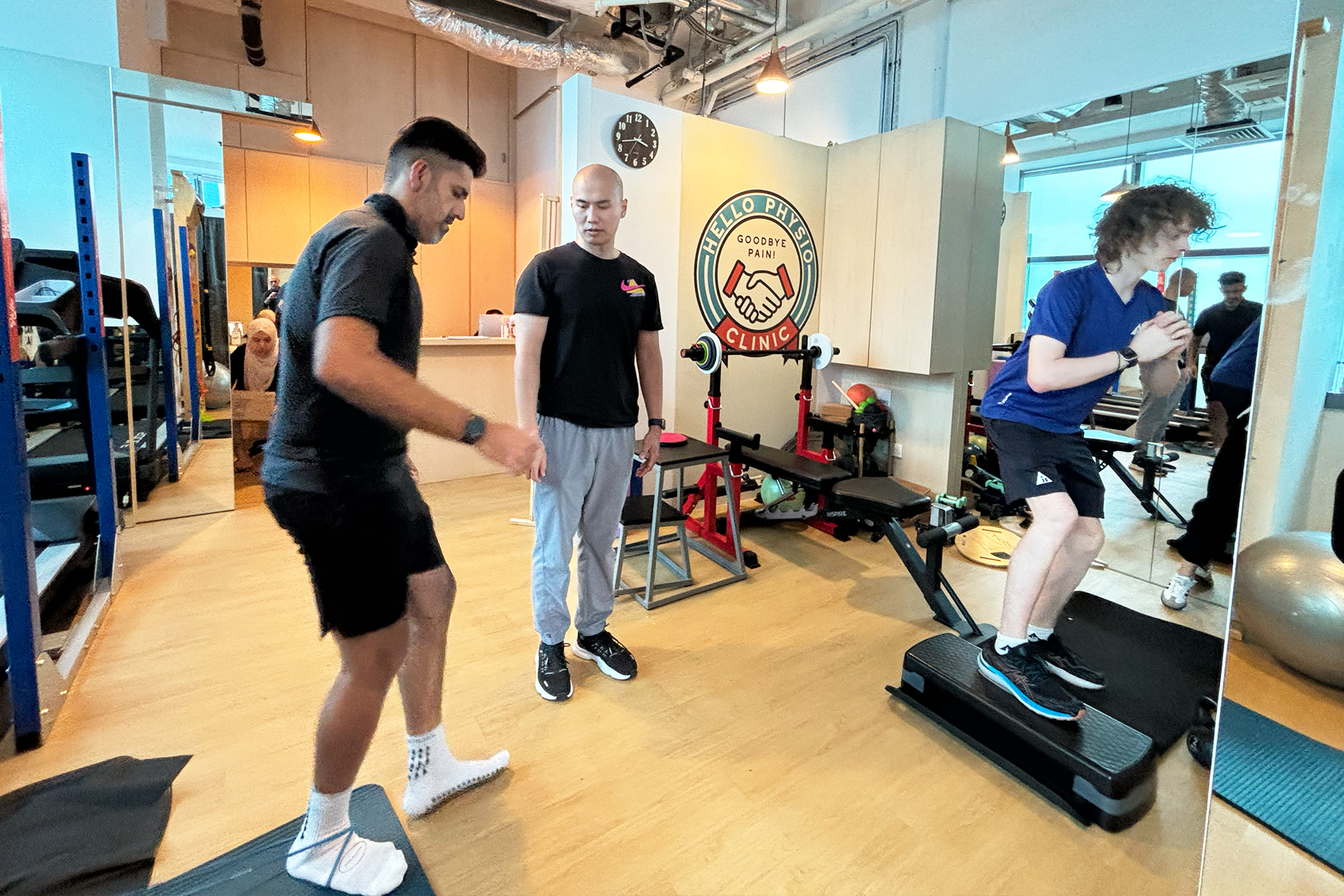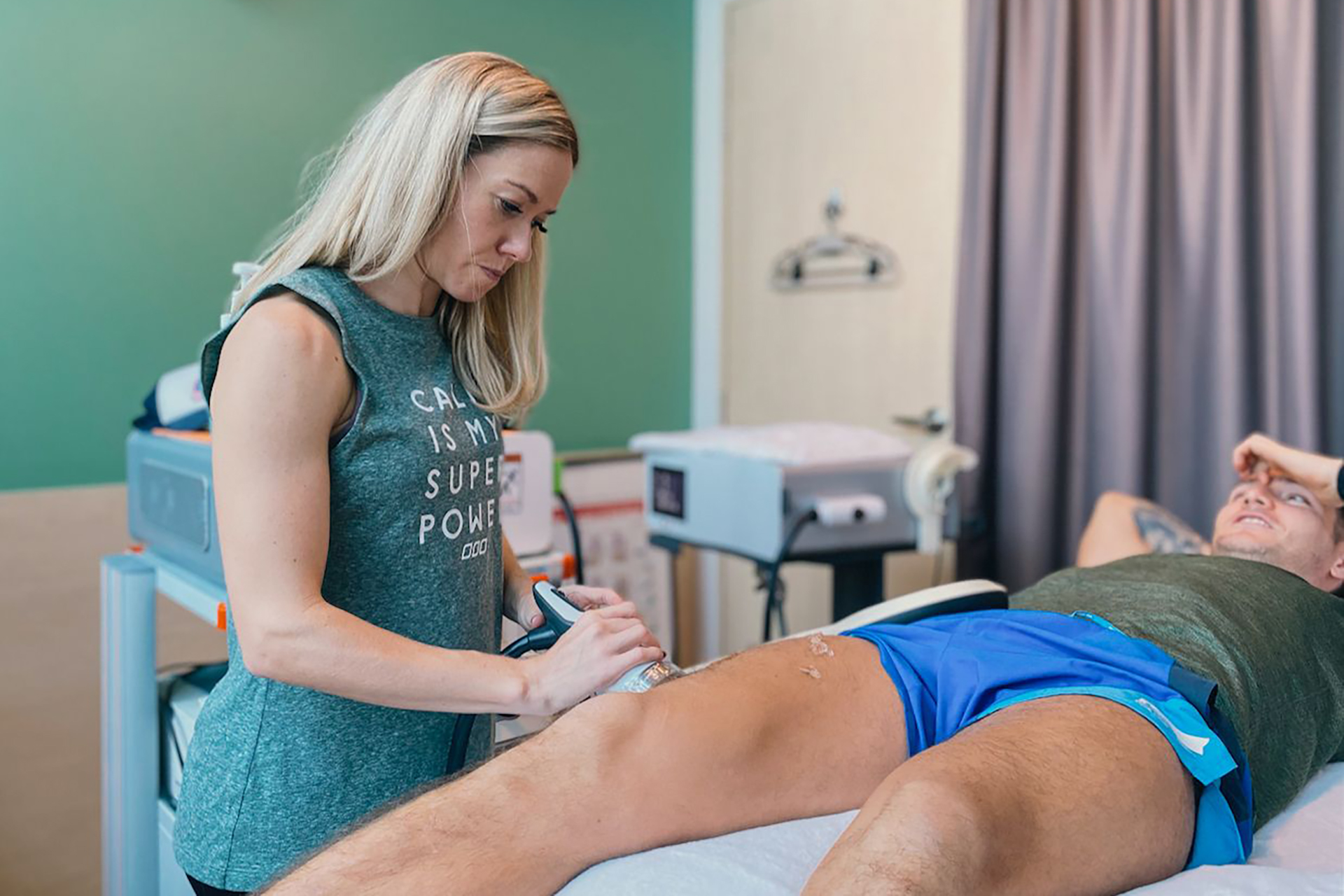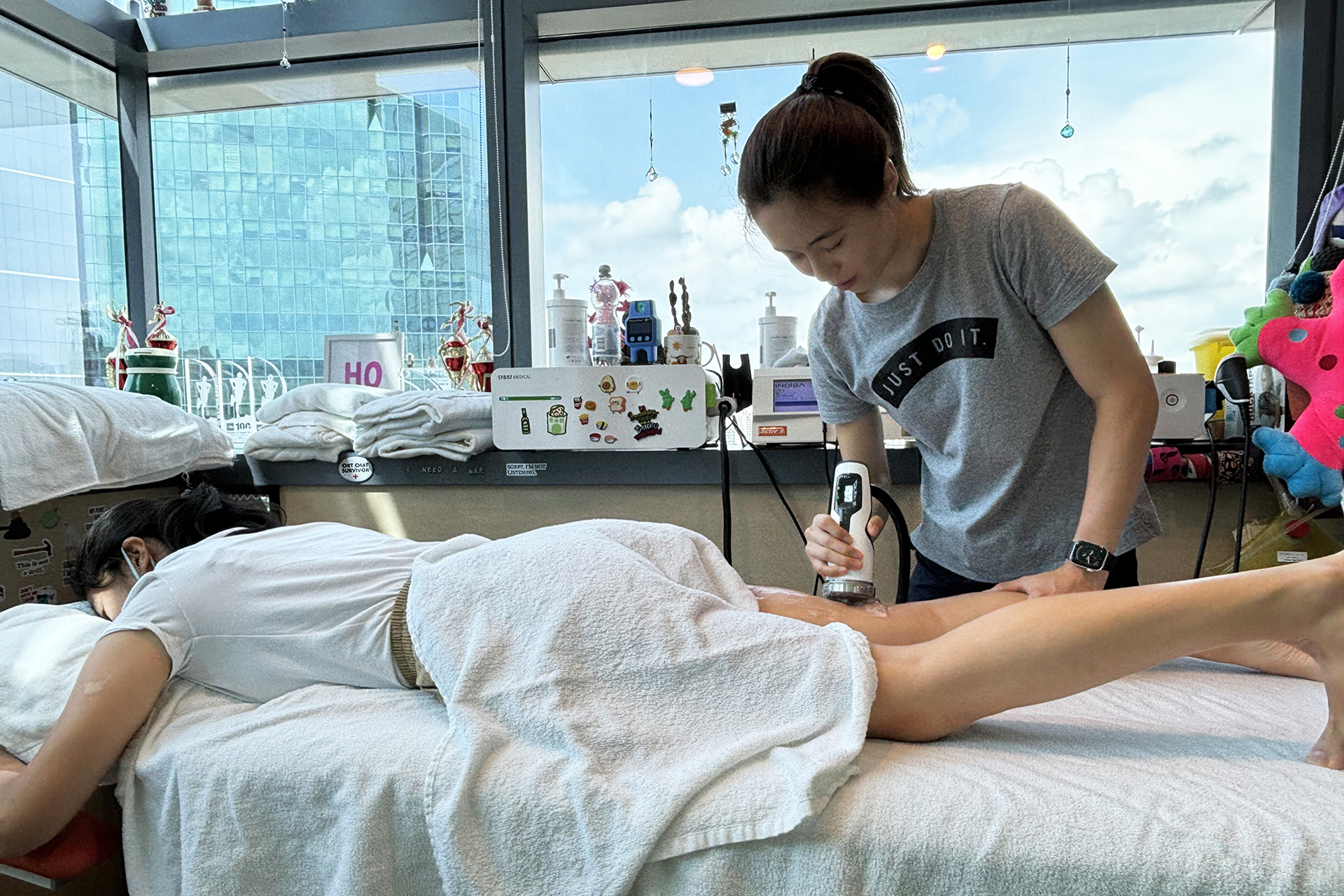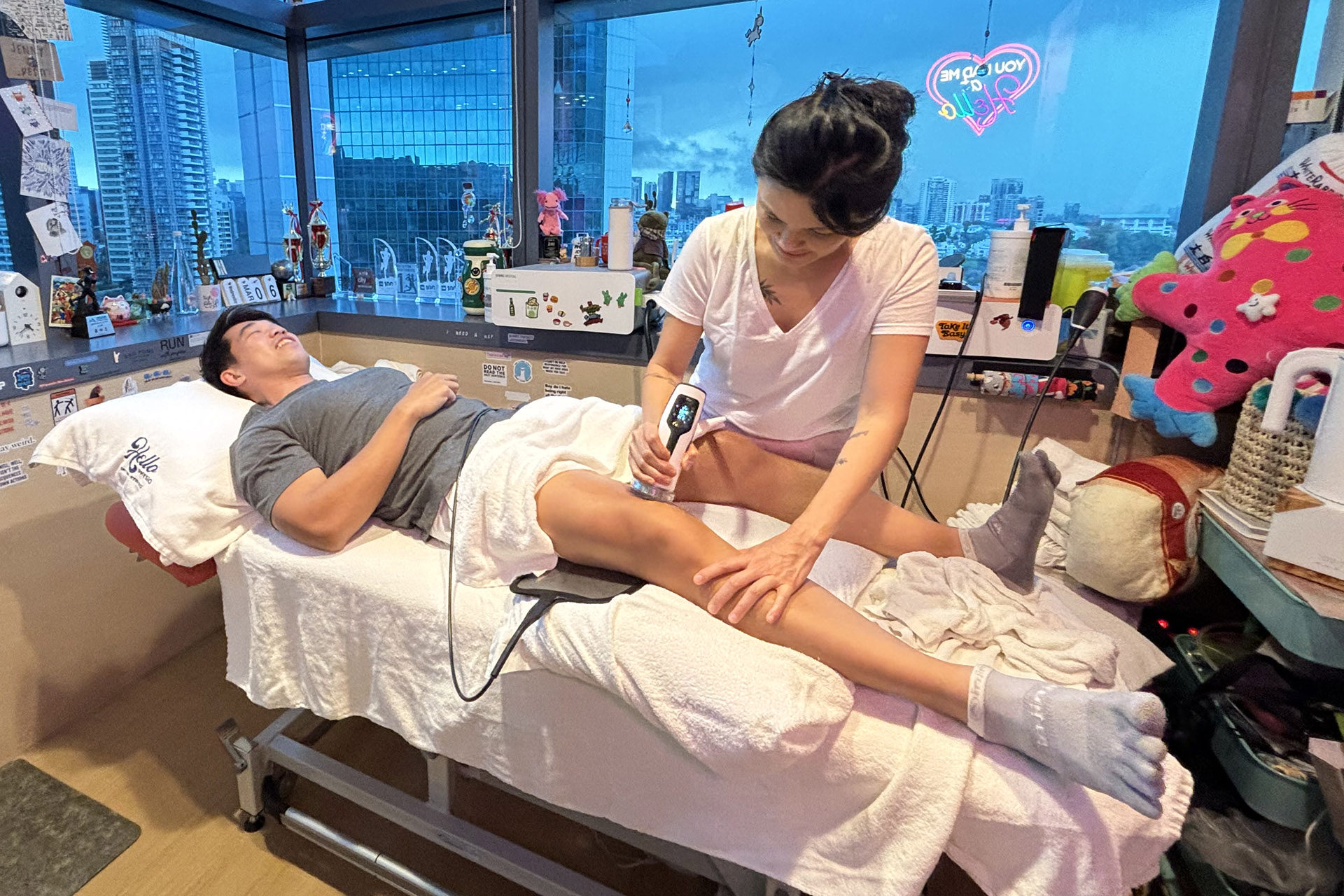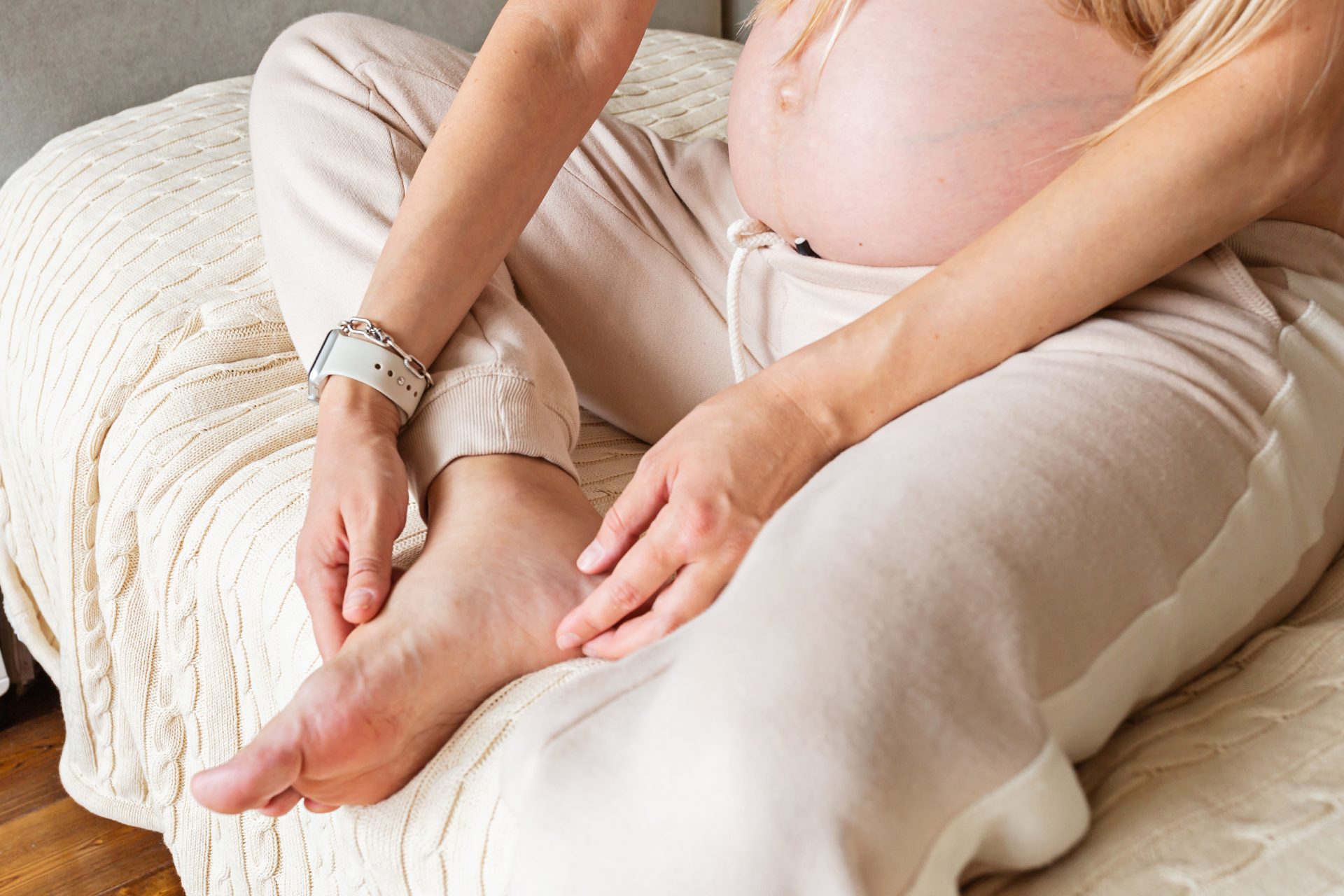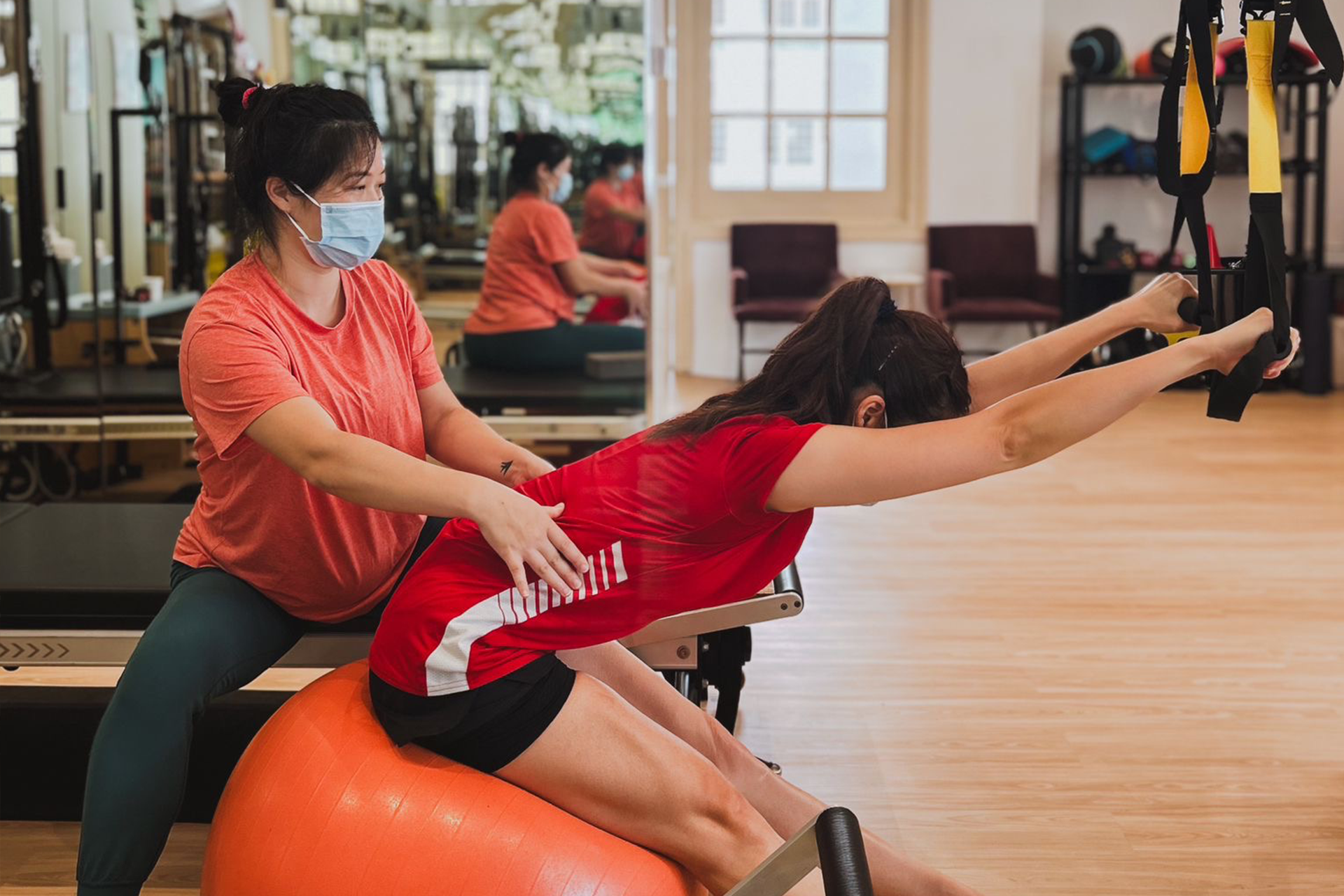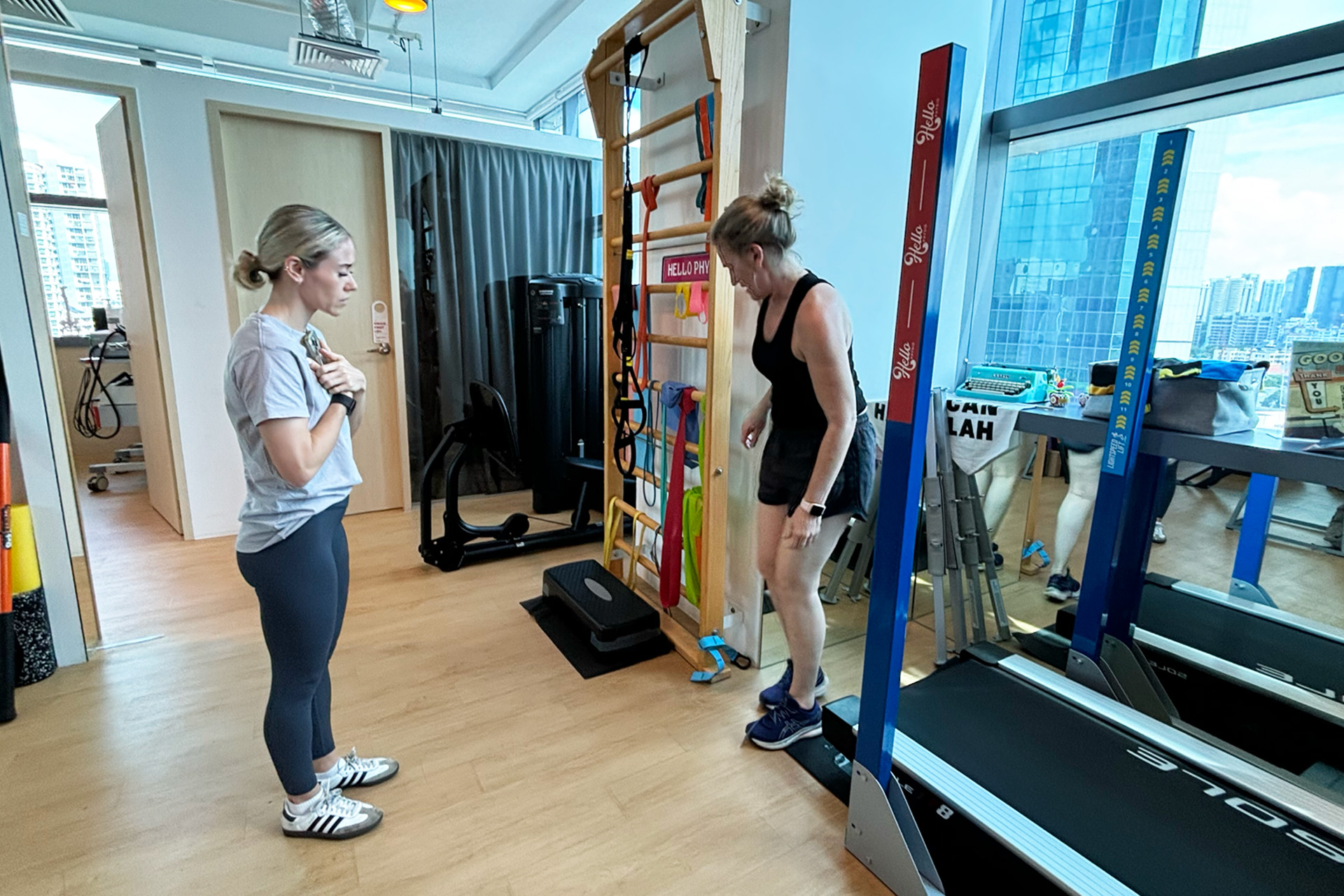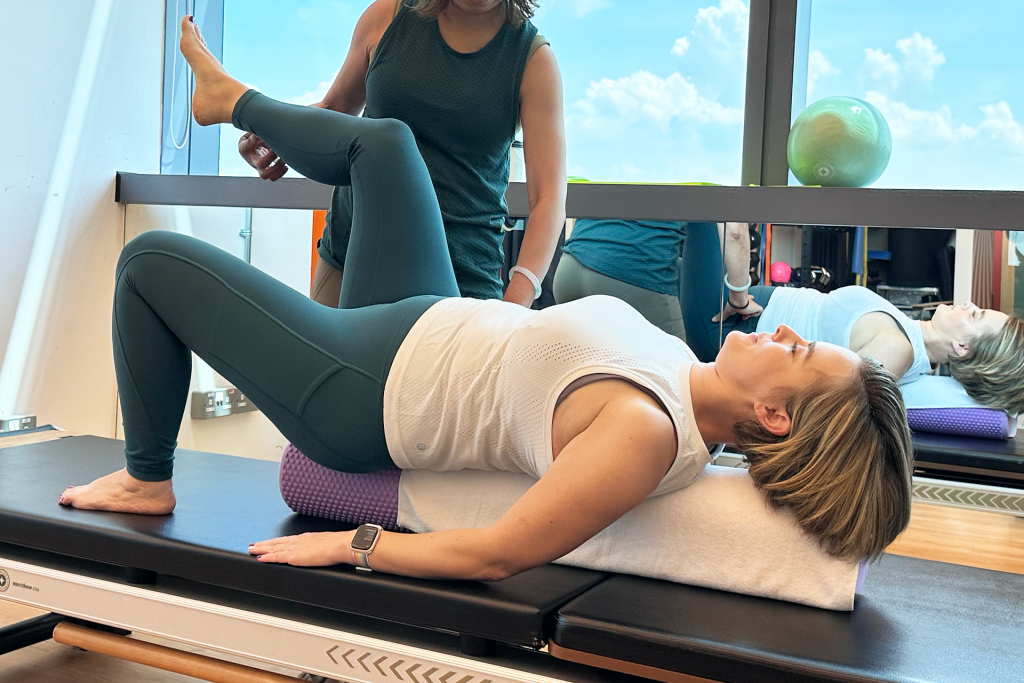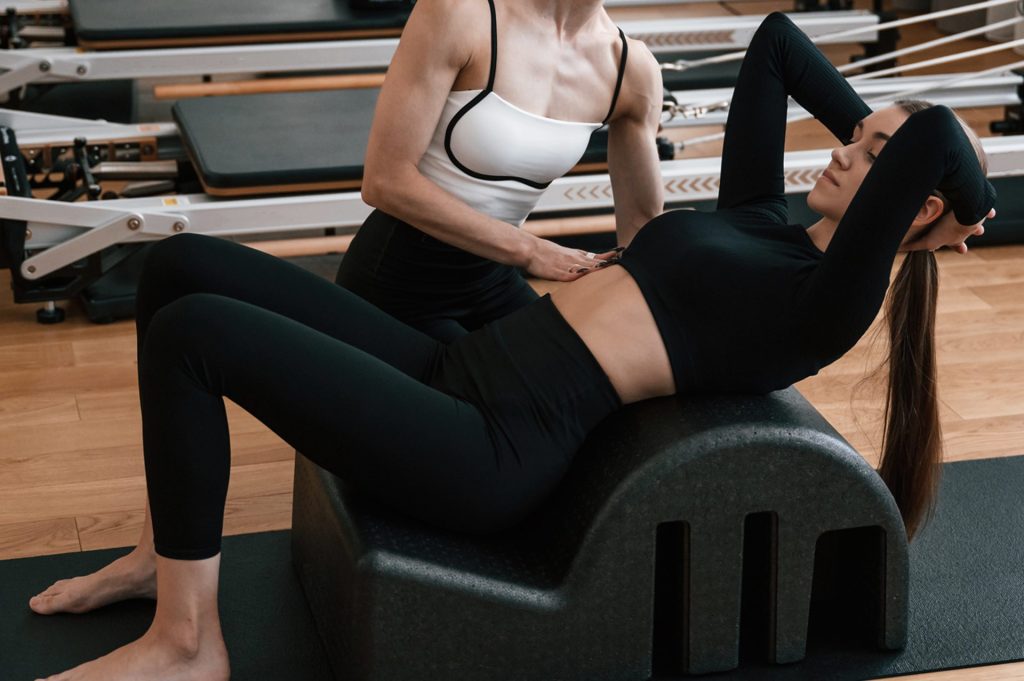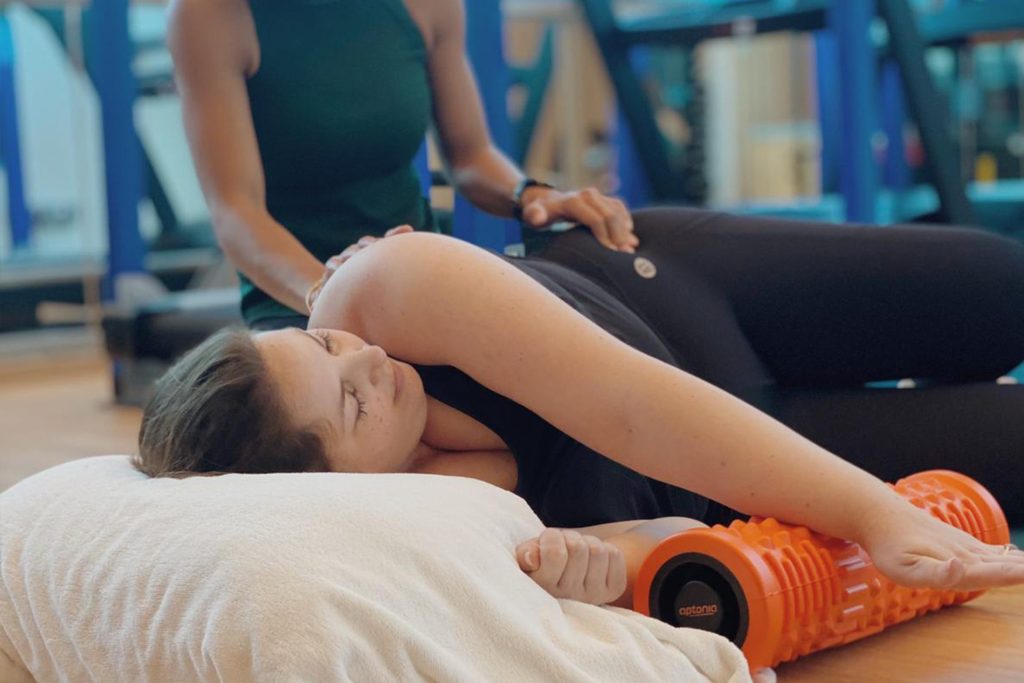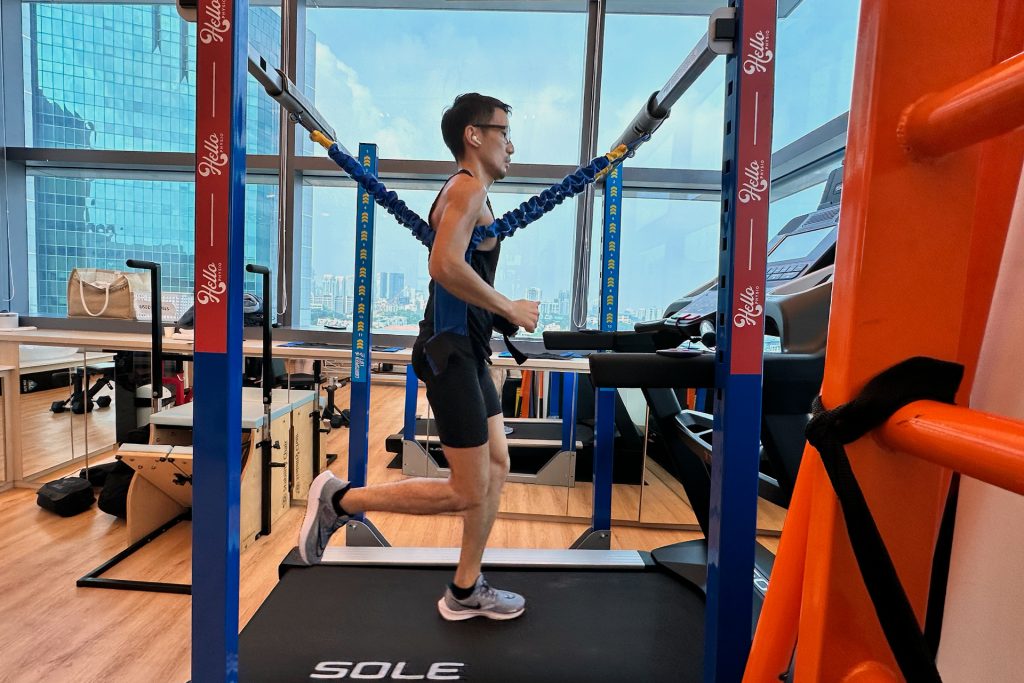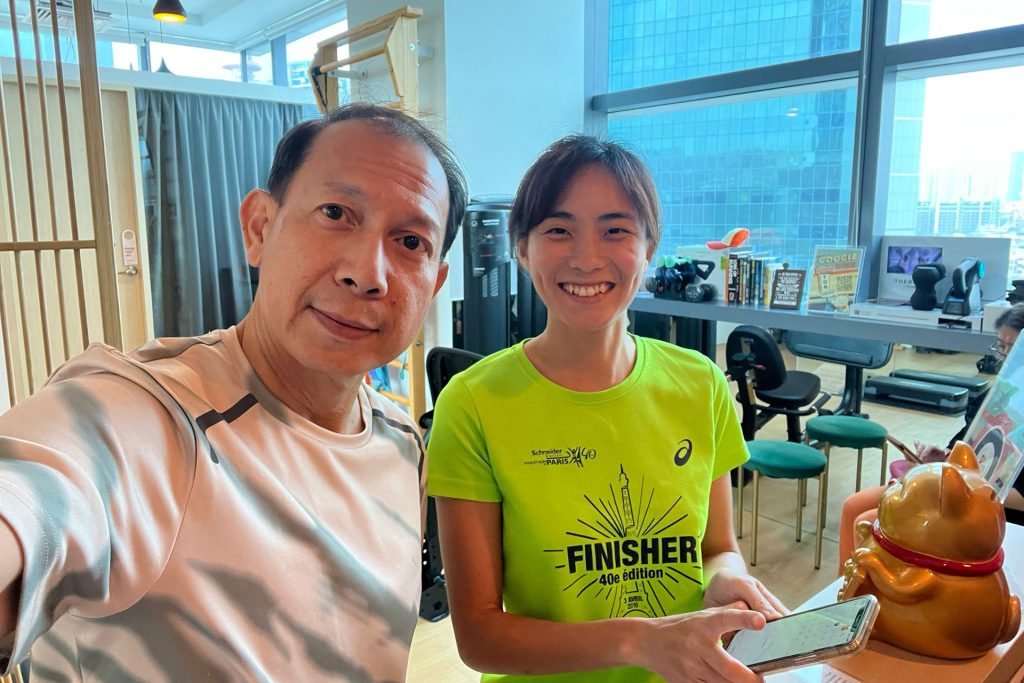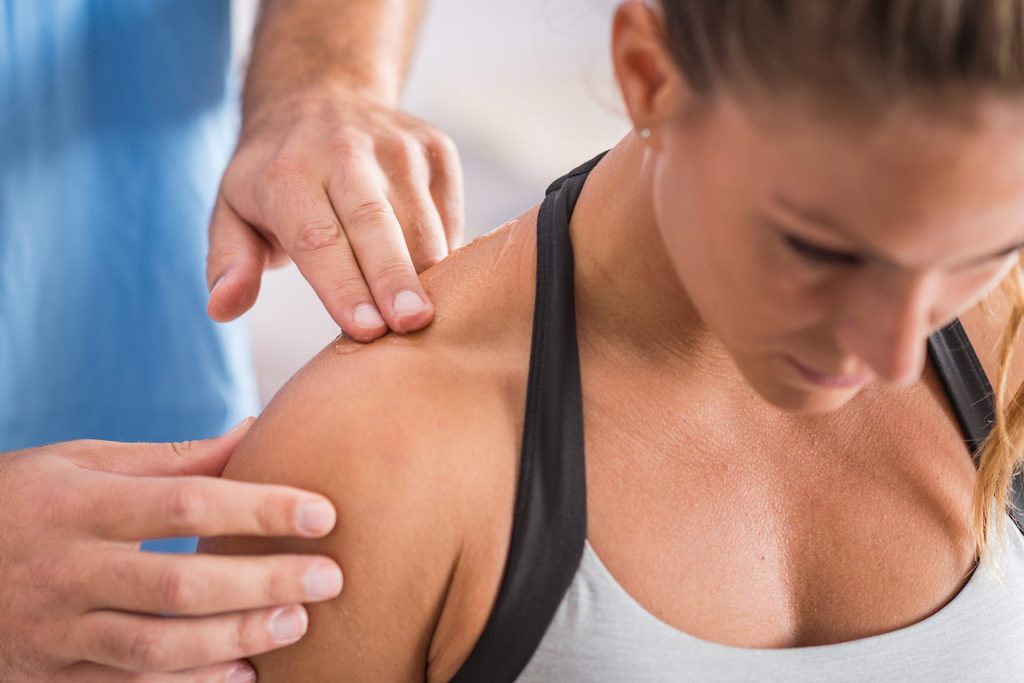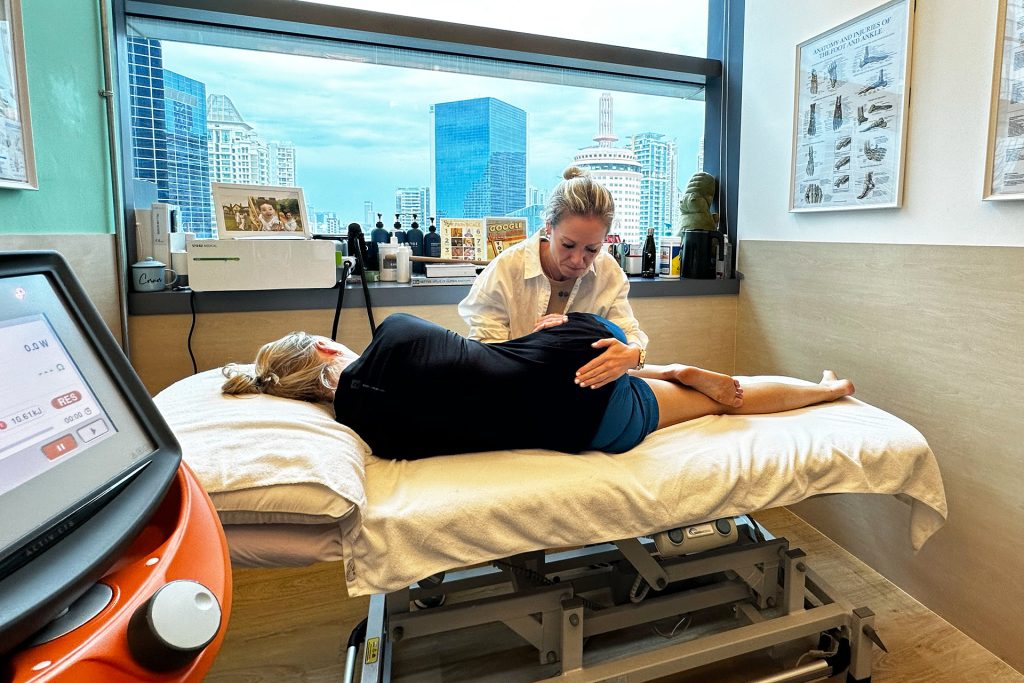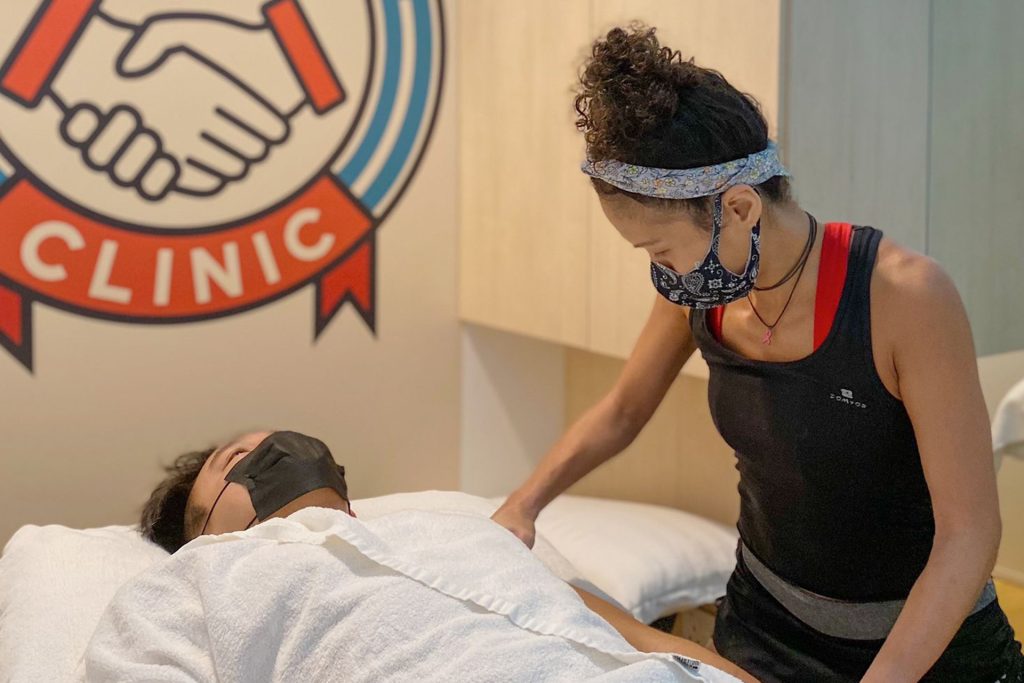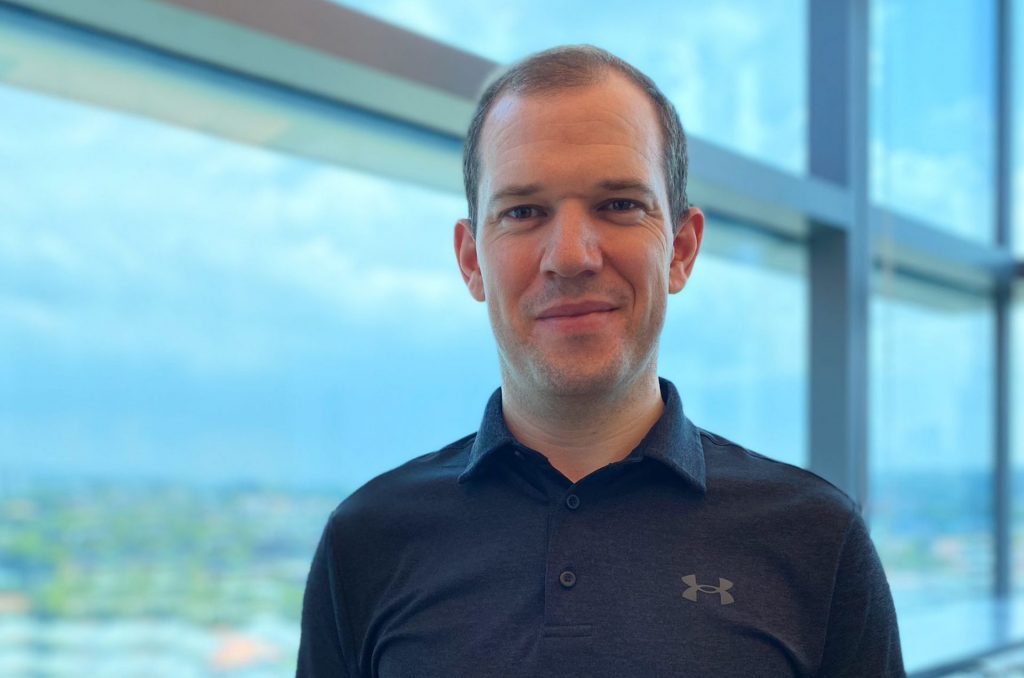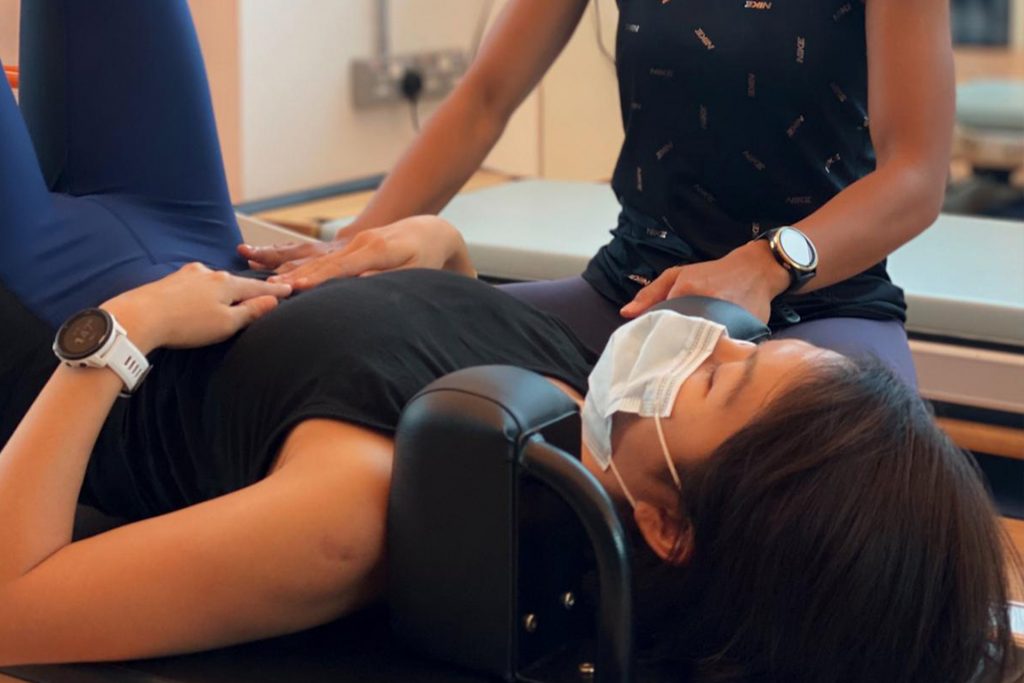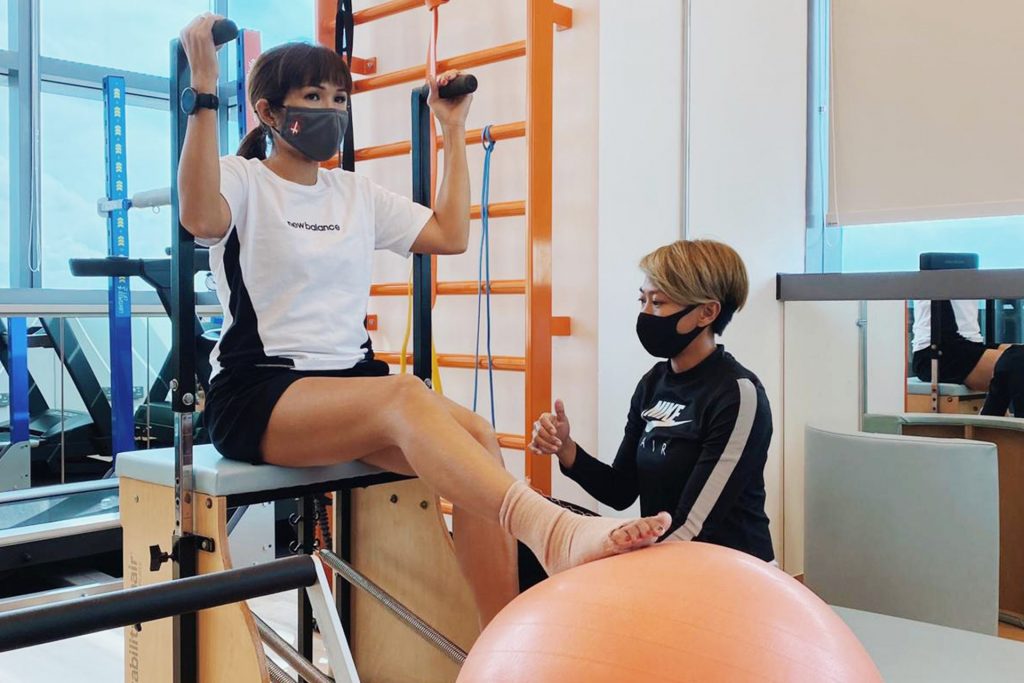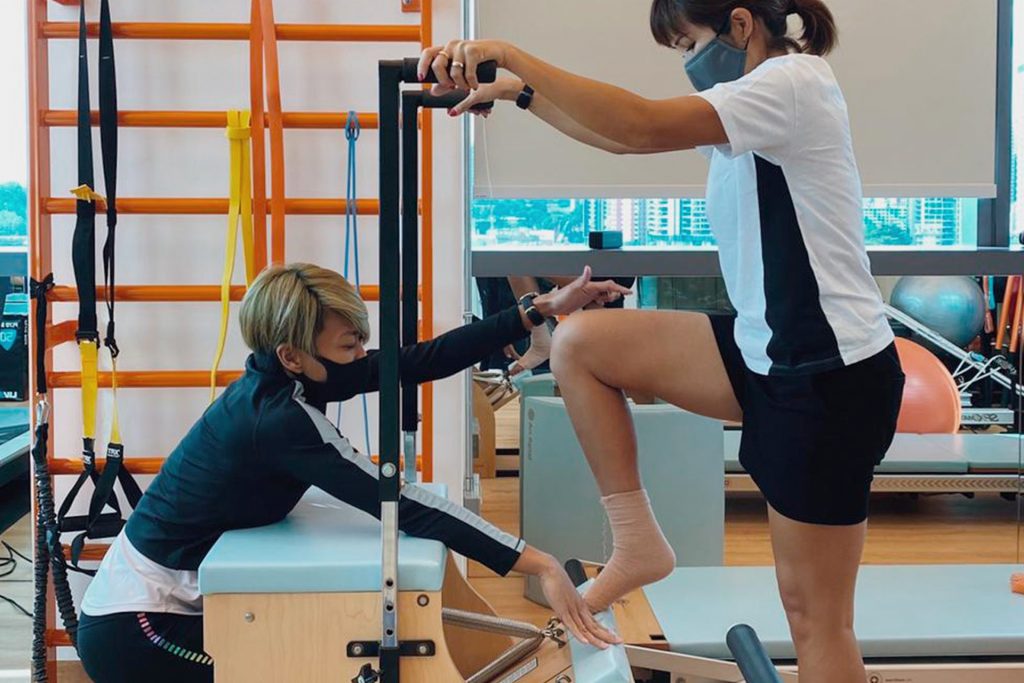Achilles tendon rupture is a common but significant sports injury, characterized by severe pain and disability. It occurs when the tendon connecting the calf muscles to the heel bone tears, making it difficult to walk or bear weight.
Physiotherapy for Achilles Tendon Rupture
Effective rehabilitation is crucial for recovery. Early treatment typically involves immobilizing the leg to allow the tendon to heal using a cast or boot to maintain a neutral ankle position. As healing progresses, physiotherapy becomes essential to regain strength and flexibility.
Techniques like prescribed eccentric exercises, which involve slowly lowering the leg from a raised position, are particularly beneficial in strengthening the calf muscles and enhancing the tendon’s capacity to absorb force.
Adjunct treatments such as INDIBA® radiofrequency, Shockwave Therapy or sports massage also reduce pain and inflammation, improve circulation, and promote natural healing. These methods are crucial in accelerating recovery, reducing re-rupture risk and facilitating a return to normal activities.
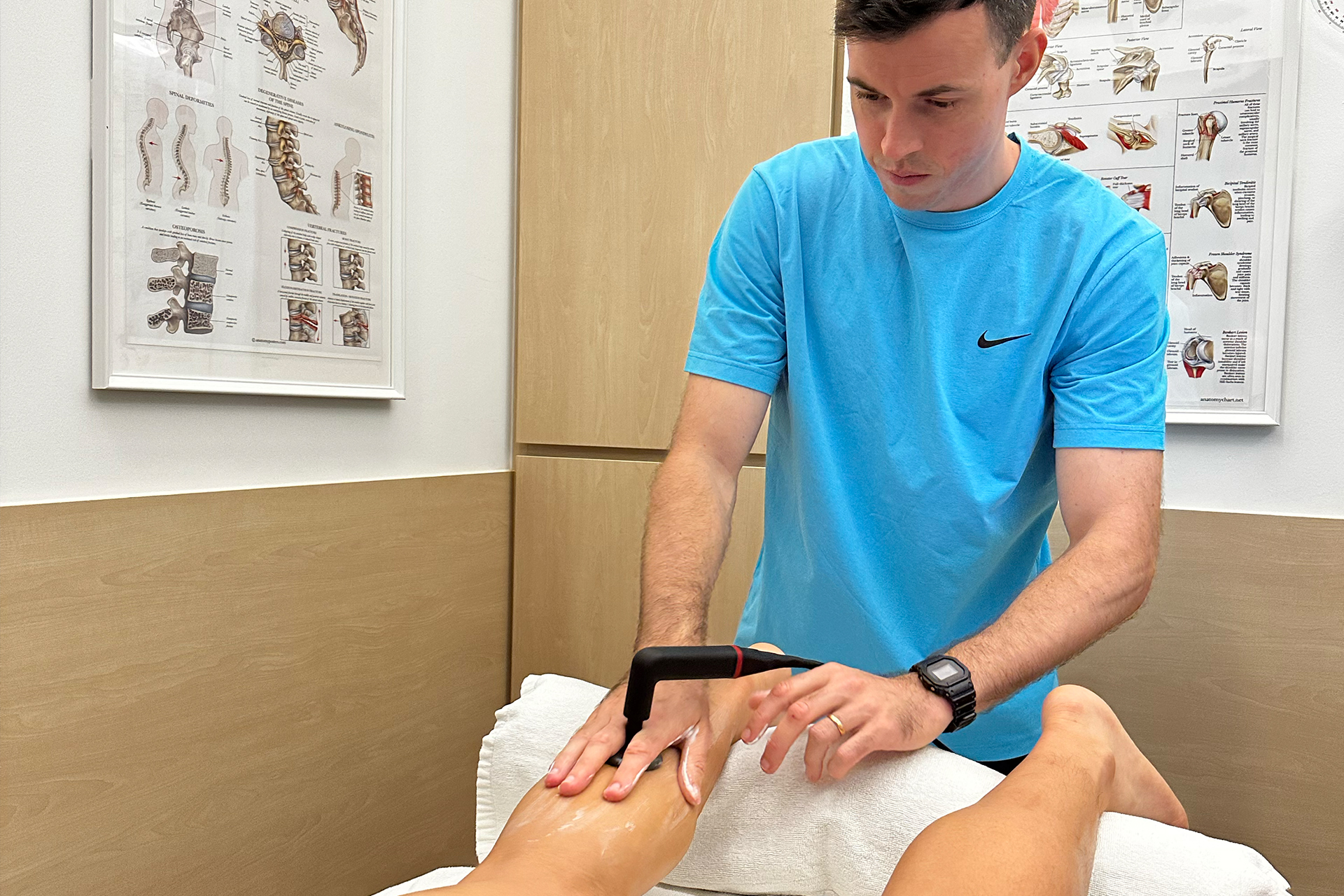
Risks of Premature Tendon Loading
Resuming activities too soon after surgery can lead to several issues, including re-rupture, delayed healing, increased pain, scar tissue formation, and reduced flexibility. These complications can significantly hinder rehabilitation and extend recovery time.
A structured rehabilitation program following surgery to repair an Achilles tendon rupture typically includes physiotherapy. This approach reduces pain and facilitates a gradual return to normal activities. The program often features exercises designed to enhance the strength and flexibility of the tendon and leg, which can be performed at home or under the supervision of a physiotherapist in a clinic.
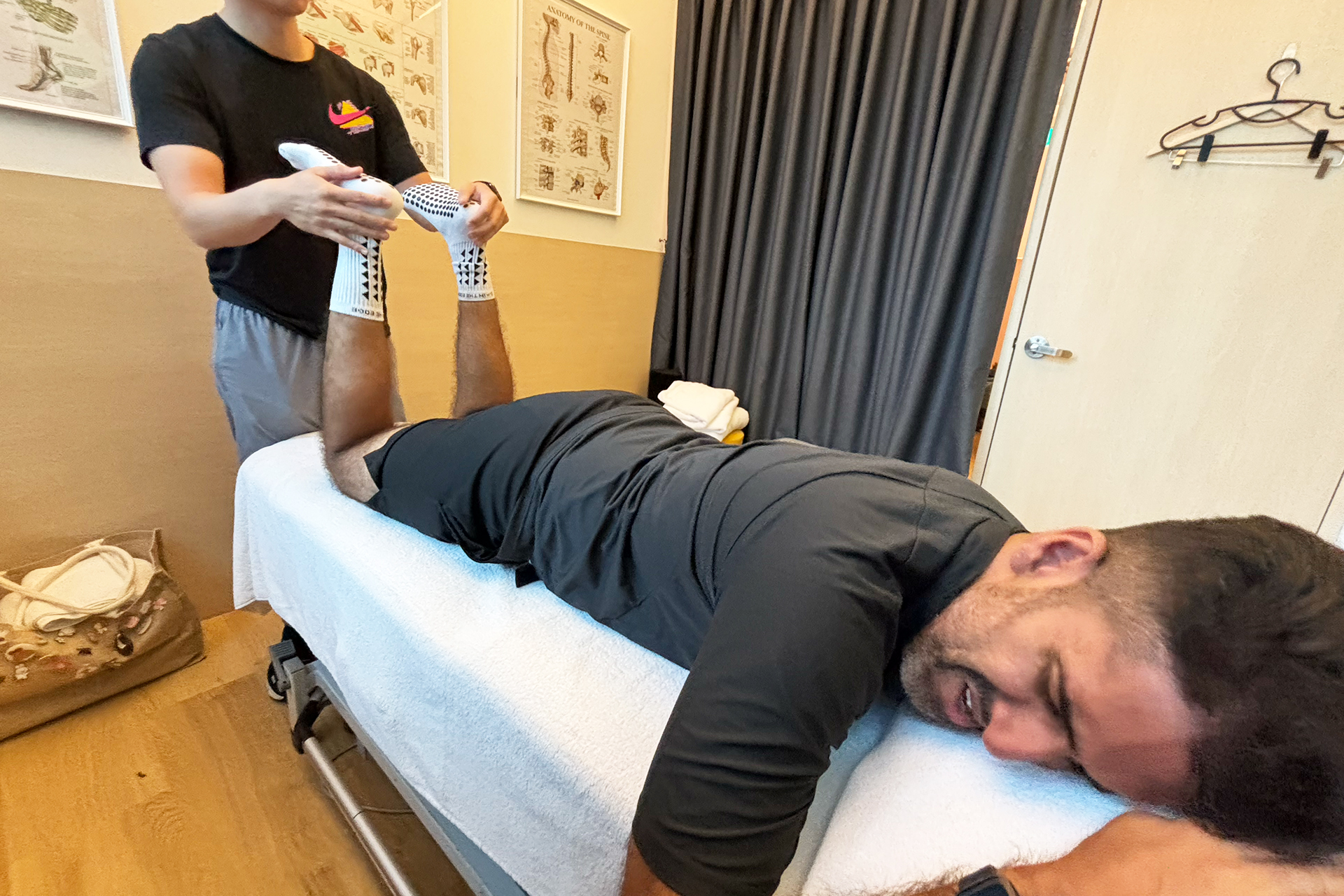
However, if an athlete resumes loading their Achilles tendon too early in the recovery process or does too much, they may face several issues:
- Re-rupture of the tendon is one of the most severe complications
- Delayed healing due to the tendon’s inability to withstand early stress
- Increased pain and inflammation hindering the continuation of the rehabilitation program
- Scar tissue formation decreases the tendon’s flexibility and increases the susceptibility to future injuries
- Reduced range of motion, making it difficult to perform certain movements and exercises
The recommended recovery time for Achilles tendon rupture surgery is typically 6 to 9 months. Dedicating this time and effort to the rehabilitation program can accelerate your recovery and help prevent future injuries. Returning to sport, though, may take 9 to 12 months, depending on the severity of the injury and the nature of the sport the patient desires to play.

At HelloPhysio, we enhance recovery with radiofrequency, sound waves and massages, which improve blood flow and break down scar tissue. It is important to note that progression through each rehabilitation phase is based on the patient demonstrating readiness by achieving functional criteria rather than the time elapsed from surgery.
Signs an Athlete Is Overtraining during the Recovery Process
Some signs that an athlete is overtraining during the recovery process after Achilles tendon rupture surgery include:
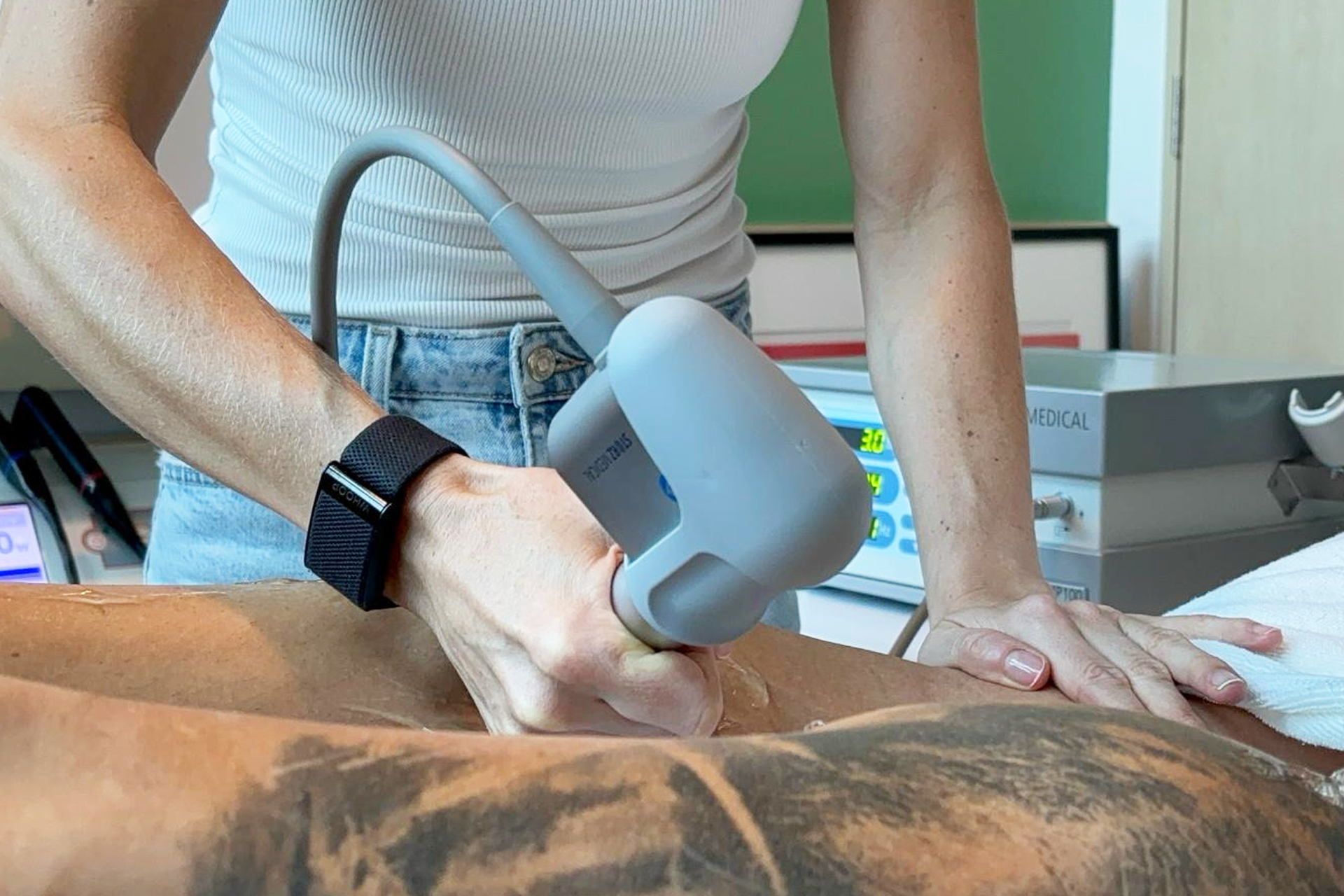
- Pronounced discomfort and a feeling of stiffness along the Achilles tendon in the morning
- Discomfort along the area where the Achilles tendon exists – especially the back of the heel – may worsen as you walk, exercise, or play sports
- A feeling of excessive discomfort after a day of exercising, running, or playing sports
- A feeling of thickness along the tendon
- Having bone spurs
- Having swelling along the area of the Achilles tendon that, while always present, gets worse with physical activity
- You’re still sore from the previous session
- Tight muscles that won’t let up
- Feeling constantly tired
If you experience any of these symptoms, you should seek help from a trained and trusted podiatrist or physical therapist as soon as possible to prevent further damage to the tendon.
Dedication to a physiotherapy program can expedite recovery and prevent future injuries. Exercises that gradually increase strength and endurance, such as toe jumps and other load-increasing exercises, are vital. Proper warm-ups and avoiding sudden movements are essential to prevent tendon injuries.
If you’re ready to get some expert tips for managing pain during recovery after Achilles tendon rupture surgery, contact our clinic to arrange a meeting with our senior physiotherapists and rehab team.

